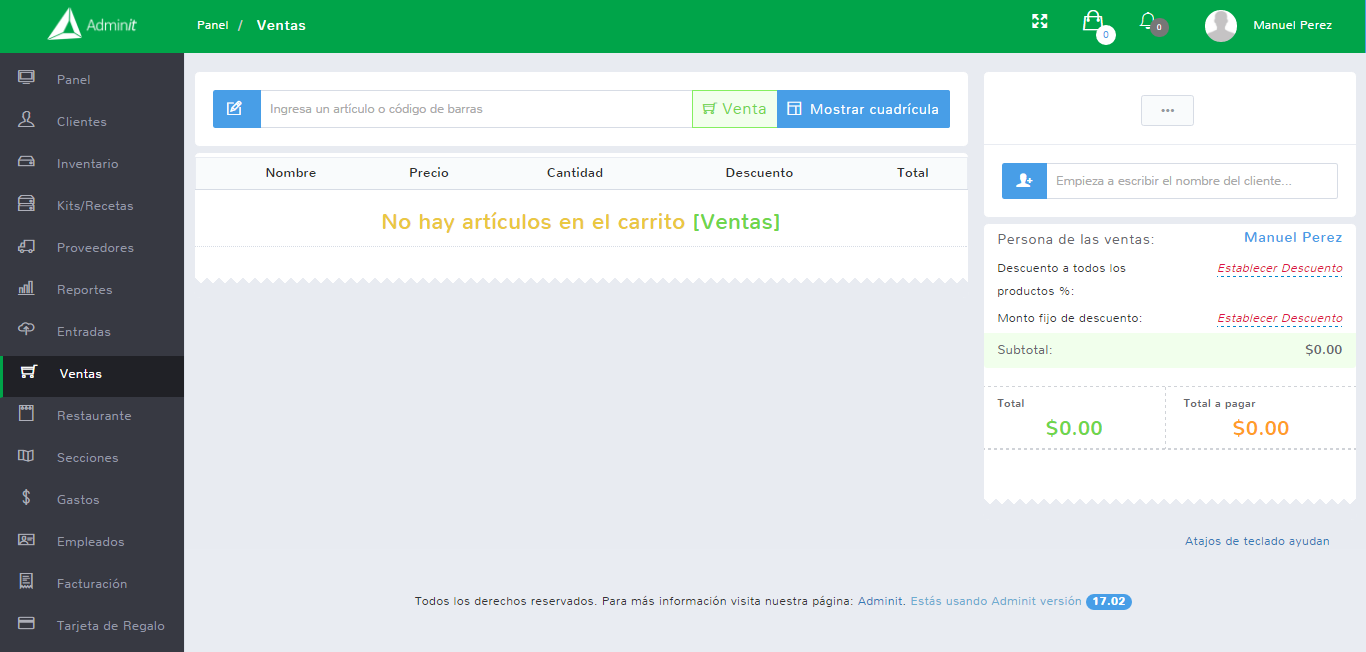1. Staff: can an SME access the best talent?
SMEs have to attract and retain talent, surround themselves with an environment of prepared and committed people ”. This is, according to Gandía, the best way to deal with reluctance, which large companies can attribute to SMEs before betting on them. In this sense, some companies, such as Contrabriefing, are leaving behind the stereotypes that indicate that a good professional staff is not within the reach of the small ones. “It is a closed circle”, affirms the founder of the company. "If you work with great clients, the best professionals will want to work with you." And he explains what his formula is to attract and retain the best professionals: “Our company is located in Logroño, which at first can throw back professionals who live in large cities such as Madrid and Barcelona. However, when you tell them: you are going to work with the largest in the sector, you are going to gain quality of life: in a small city there are no traffic jams, you are going to earn the same ..., things change ”.
2. A differentiated product or service! The main strength
If a small company wants to win a large contract, it must offer a specialized product or service, differentiated and adapted to the client's needs ”, says Alberto Zamora, partner of Accenture Management Consulting. It is obvious that you cannot compete on equal terms (you cannot, for example, develop economies of scale), but that does not mean that you do not have a chance to compete for the big contracts.
Different product. Specializing in one type of service or product is another key to success, according to Zamora. Thus, the human resources consultancy Ábaco Siglo XXI found a good market niche. "We were born with the boom of new technologies and at that time there was no specialized recruitment company, like us, in technical positions", explains Marta Merino, director of the company. Adapted to the client. "The adaptation of products and services to the needs of the client is another of the guidelines that SMEs must respect, which must demonstrate specific knowledge of the client's needs and operations," according to Zamora.
3. Let's go for the first customers!
The experts point out several guidelines to achieve the much desired first contracts: New formulas: To attract our first clients we use a formula in which we were pioneers and which we call “successful work”, recalls Marta Merino. “Successful work means that we do not demand from our clients any type of exclusivity and commitment: they can, for example, continue working and looking for personnel from their Human Resources department,” he explains. "In this way we got our first major client, Vía Digital, at a time when there was a need and demand for technical positions and few candidates available and when there was no recruitment company of this profile," he continues.
Find the right interlocutor. "In order to attract the first customer, it is important to achieve a degree of ease of access to key interlocutors," says Zamora. "Which requires some research work," he adds.
The first, an investment. “If the SME is able to offer an impeccable product or service, without any problem, and at a fair cost, your first client, no matter how large, will be satisfied and can recommend you to other clients. But you have to have the profile of that first client carefully studied, measure the impact that that first cost is going to cause and be sure that it is not going to fail: the name and surname of your client is not so important, what is there to check is if really that need that he has you can better cover it ". Previous contacts. If you come from the sector in which you are going to focus your company, the way to find the first client is easier.
Aggressive? Contrabriefing, for example, has as a business policy not to carry out any commercial campaign to attract customers. In fact, they do not have a commercial department. "We prefer to invest the time in taking care of the client's needs," says its director.
4. Do not overflow!
Mortgaging the business with a single client can be negative and having too many clients can affect the quality of the work. How to combine these factors and determine how many customers in total the products and services can be offered?
For Alberto Zamora, “the number of clients is determined by the ability to provide a quality service. The key is to have a portfolio of loyal and high potential clients for the SME. In this sense, it is critical to focus on the customer segment that most values the advantages and the level of specialization of the product and service portfolio and has the greatest potential ”.
For the founder of Contrabriefing, the optimal number of clients is the one that allows the balance between the economic sustainability of the company and the level of quality demand. "We cannot mortgage the company to a small number that could suffocate our financial balance, nor can we indefinitely increase our client portfolio."
5. Don't forget to diversify
An example of the commitment to diversification as a key to success is offered by Contrabriefing. “Our business project is aimed at clients from different sectors: footwear, furniture, food, banking services, beauty, construction, sports and free time, etc. This diversity of business means that we do not have falls, because the low cycles of one coincide with the peaks of others, explains the founder of the marketing and communication consultancy.
On the other hand, Ábaco Siglo XXI found in the diversification of the business a way out of the crisis in the new technologies sector. services to other related sectors such as engineering or the industrial sector. Now we focus our offer on the real estate and construction sector, which is the one that offers the most demands, ”says Merino. In this way, they have managed to acquire a portfolio of between 250 and 300 clients that they manage with a workforce of 25 people.
6. Prices? It is not a problem
Aunque puede que un precio bajo ayude a ganar contratos, la mayoría de los expertos coinciden a la jora de aconsejar que una pyme no den e competir por precio y sí por calidad en los productos o servicios que ofrece. “La competencia, más que en el precio, se encuentra en los resultados”, afirma González en este sentido. “En un sector como el de la publicidad es muy difícil manejar un precio fijo a priori, pero podemos ganar a las grandes con elementos perceptibles como la confianza, la solidez y la creatividad. En un primer momento el precio puede ser determinante pero sólo si el cliente no confía en el ‘qué’ y en el ‘cómo’ se lo vas a hacer. En Contrabriefing no damos precios de partida sino que esperamos hasta que podemos presentarle una aproximación del trabajo que vamos a realizar. Entonces normalmente se acepta sin problemas. Además un cliente formado debe tener un presupuesto para invertir en cada acción que se plantee y lo que nosotros le planteamos es la óptima gestión del mismo”, explica el emprendedor. Gandía matiza que el precio siempre lo va a marcar el mercado. “Las pymes pueden mantener la competitividad en los precios porque gozan de menores costes generales y de estructura y de un mayor nivel de especialización y flexibilidad”, explica Zamora. Las pymes sufren de menores volúmenes productivos y menos poder de compra, pero pueden compensarlo con productos y servicios más adaptados a los clientes.
7. Small in size, but big in capacity
And so you have to prove it to your clients. “We carry out market studies, we demonstrate with data the profitability generated by our campaigns, we have a welcome manual for our workers, we present reports of results to our clients,… it is assumed that all this is only done by the big ones, but, once again , our company breaks molds in favor of the small ones ”, maintains the creator of this company.
8. Pamper your customers
In the relationship with the client, SMEs offer a personalized and closer treatment than large ones and in this sense they can change the relationship with the client: rather than as a supplier, the client has to see yourself as a partner, advises Gandía. It is not difficult, for example, for all employees to know all customers by first and last name, or even to be able to recognize them only by voice when they call on the phone. One hundred percent involved. "In addition, we are all involved in the process of managing all the accounts, so each of us can offer information related to each account and knows exactly what process each of our clients' jobs is in," says González.
In Ábaco Siglo XXI, for example, a consultant is assigned to each client and to do so, specialization is taken into account but the feeling between consultant and client is also sought. "In other words, depending on a series of competencies, we assign a consultant or another: we study if what you are looking for is to have the reports prepared well or if you want people with a quick response, for example," explains Merino.
Fountain:
http://www.emprendedores.es/















No Comment